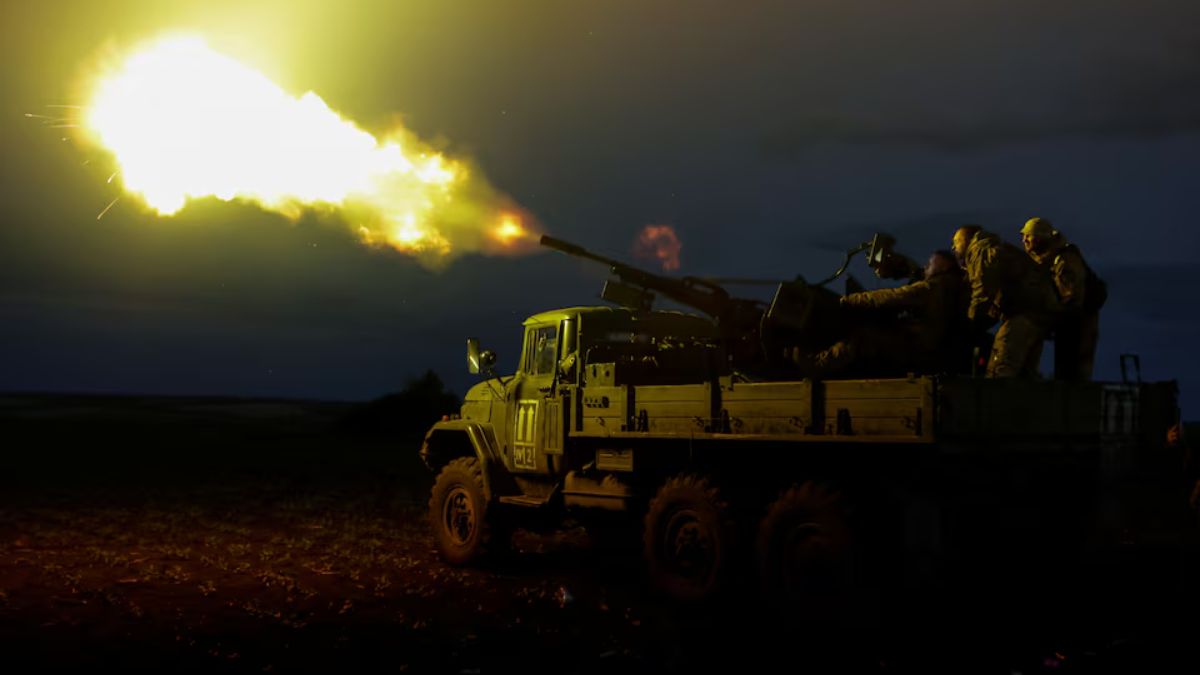Can the West still force Russia away from Ukraine? Moscow warns 'illegal' EU sanctions would backfire

The Kremlin on Sunday warned the European Union (EU) that ramping up “illegal” sanctions on Russia would backfire on its own economies.
This comes amid Russian President Vladimir Putin's comments on Thursday that Moscow was “ready” to part with roughly $300 billion in frozen assets (mostly held in the EU) if it meant speeding up the shift away from Western-dominated financial systems.
ALSO READ | Vladimir Putin 'ready' to part with frozen $300 billion assets to undermine Western financial power
The suspension of the assets are a part of the EU's punitive sanctions intended to stop Russia's aggression on Ukraine, making Moscow one of the most sanctioned economies in the world, as per a Reuters report.
"The more serious the package of sanctions, which, I repeat, we consider illegal, the more serious will be the recoil from a gun to the shoulder. This is a double-edged sword," Kremlin spokesperson Dmitry Peskov told state television, the report added.
In one of its biggest offensives since the beginning of the conflict, Moscow on Sunday fired a total of 537 aerial weapons at Ukraine, including 477 drones and decoys and 60 missiles.
While Europe continues to use sanctions packages to try forcing Russia into ending its conflict with Ukraine, the United States has not yet increased its own separate sanctions on Moscow, despite EU calls for a unified approach to the conflict, and US President Donald Trump's alignment with NATO leaders in their defence investment pledge earlier this week.
Trump's hesitancy to expand Washington's own sanctions regime against Russia also comes amid Putin's remark of the “great respect” he had for his American counterpart, and mentions of a “possible” meeting with him.
ALSO READ | ‘Dragon’s Teeth’ fortifications explained: Viral war video shows Russian soldier on bike killed by Ukrainian drone amidst obstacles
Even though diplomatic ties between the two nations seem to be slowly stabilising, Trump also continues to maintain a balancing act. He met with Ukrainian President Volodymyr Zelenskyy on the sidelines of the NATO summit earlier this week, agreeing to collaborate with Kyiv on defence.
If not sanctions, then what?
Moscow has also been considering reducing its military expenditure: a surprising response to the NATO defence investment pledge, as per which the bloc's members would be increasing their defence spending by 5 per cent, relative to their GDP.
These bold moves in the face of continuing aggression on Ukraine with a larger view to stem the eastward expansion of NATO begs the question: if Moscow has really built up “resistance” to EU sanctions, what would get it to stop attacking Kyiv?
Indeed, although the sanctions impacted Russia's economy just after the start of the conflict in 2022, it grew in 2023 and 2024 at faster rates than that of the EU, despite an increase in the sanctions, as per the Reuters report.
It must be noted that the sanctions strategy is founded on Western policymakers' long-term strategy for Ukraine, based on the assumption that once the hostilities end, Ukraine could be fortified in strategic collaborations with the EU, UK and US, so as to deter renewed aggression.
ALSO READ | Ukraine’s new game changing "ant" robots to be used for combat operations
However, as the hostilities continue unendingly, it would be wise to redefine what the end of the conflict would look like—rather than expecting Russia to stop due to pressure, or Ukraine to defeat it. Instead, a better outcome would be to deny Russia of its achieving its military goals, according to a Carnegie Endowment report.
As Ukraine's responses to the attrition conflict turn into a method to hold strong against Russia, the report explains that it was “strategic neutralisation” that emerged as a modern way for Kyiv to resist Russia: by denying it from achieving its military objectives, while also building a resilient, secure, and sovereign state.
While strategic neutralisation is no peace plan, it does offer a way for Ukraine to hold out against Russia in the long-term, as the two nations engage in a dynamic contest to prevent their citizens and their infrastructure from being destroyed, while also not having to cede too much in a conflict that both nations have heavily invested their blood, sweat, and tears in.
World